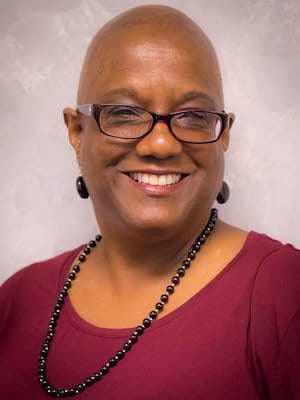Day and night, he orchestrated her every move.
She was told when to sit, stand, come and go. She was also told whom she would provide sexual favors for, what she would do, when, where and for how long.
She, like many others through the ages, got caught in the business of prostitution.
Prostitution is engaging in sexual activity with someone by choice for payment. Unlike sex-trafficked victims, society, including the church, does not usually look favorably upon those in the business of prostitution.
Women being trafficked in the ever-growing global sex industry are recognized as “true” victims. For clearly, human trafficking is the illegal movement of people typically for the purpose of forced labor or commercial sexual exploitation.
Rightfully so, we have waged a war on human trafficking as it is commonly called modern-day slavery. My unpopular opinion though is that there is a thin-line between the two: prostitution and being trafficked for sex.
Echoed here is a call for compassion for the woman seemingly engaging in prostitution by choice. If we can understand the age-old, yet increasing global feminization of poverty, we may begin to think differently.
A high percentage of the world’s poor are women. When women are disproportionately poor, the ramifications are grave.
The struggle to meet her family’s basic needs as well as the inaccessibility to preventive healthcare and education are self-perpetuating cycles. This cycle can catapult one into a life of prostitution or make one more highly at risk for being trafficked across geographic boundaries.
For some women, it was that one encounter when a promise was made for a better life or she was just blatantly offered the chance to make money with his protection.
For most scenarios, the victim soon finds out that her degradingly hard work never pays because he gets the money and she is caught not only physically but, more important, emotionally in a web of perceived need.
You may be wondering how can I defy the acceptable comparisons between prostitution and sex trafficking?
I can because in the last eight years, walking the streets of the Prostitution Zone of our city in the midnight to early morning hours, I have met these women.
For sure, there is the occasional woman there by “choice.” She may have bills to pay and engages in sexual activity for payment but I found this a rare scenario.
In listening to the stories of the women in the night, I cry.
I cry for the poor mother who was released from prison with nowhere to go and no way to earn a living.
I cry for the pastor’s daughter from East Tennessee who was promised by the man of her dreams that they were going across the border into Virginia to start a business in Richmond.
I cry for the woman that was doing well in her studies at the university until her lover convinced her to get high and she is now hooked and dependent on him as he controls her body for profit.
I cry, too, as I walk the night hoping to report that we have found a young girl that has been abducted from a nearby city or another state. This has happened only once.
My stance also affirms that there is a complex underground market meeting the demand for sexual favors and thus a vibrant sex trafficking industry. Common definitions see no tension between the two but for me it’s a gray area.
There would be more compassion for those caught in prostitution if one could understand the feminization of poverty or the powers and principalities in high places that would seek to destroy and devour another for financial gain.
At the Woman’s Missionary Union of Virginia where I serve, we are very concerned about issues related to women and children. One of our ministry emphases is to equip the church to address human sex trafficking in all its forms.
Our Hope: Human Trafficking Team addresses this problem in the spirit of Christ who himself declared that the spirit of the Lord was upon him to set captives free. This team provides to local congregations:
- Education and awareness training
- Preventive education
- Involvement opportunities
What can you do to address this issue? Let me suggest that you:
- Pray for those caught in the sex business and for their predators.
- Raise awareness by inviting a human trafficking advocate or nonprofit leader to speak about his or her work.
- Teach the young people in your church about internet safety to protect against potential predators. Law enforcement personnel do this well.
- Support a local safe house or shelter that services women or children who have been trafficked.
- Start a streetwalking ministry.
- Host a jewelry or craft sale using items made by former trafficked or at-risk women from around the world. See World Crafts of WMU here.
Valerie Carter is a widow and mother of two adult sons. She serves as the executive director/treasurer of the WMU of Virginia and teaches sociology at a community college. You can follow her on Twitter @Xpoverty.
Editor’s note: This article is part of a series on how local churches and nonprofit organizations are working (and can work) to address human trafficking.
The previous article in this series is:
A Baptist Report Card on Human Trafficking
Executive director / treasurer of the Women’s Missionary Union of Virginia. She is passionate about uplifting women which has led to a “streetwalking ministry” reaching sex workers in her city for 14 years.

